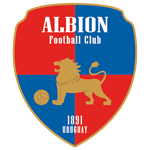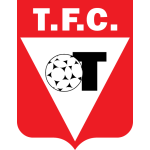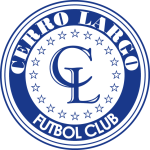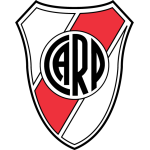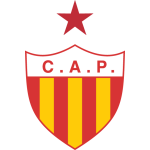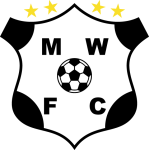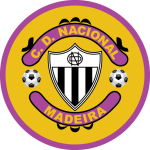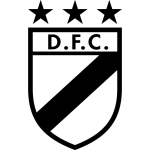Uruguay (League) - AI Football Predictions Online
| AI | ||
|---|---|---|
 Segunda División Segunda División | ||
| 2025-04-04 15:00 |
| |
| 2025-04-04 19:00 |
| |
 Primera División Primera División | ||
| 2025-04-11 18:00 |
| |
| 2025-04-11 18:00 |
| |
| 2025-04-11 18:00 |
| |
| 2025-04-11 18:00 |
| |
| 2025-04-11 18:00 |
| |
| 2025-04-11 18:00 |
| |
| 2025-04-11 18:00 |
| |
| 2025-04-11 18:00 |
| |
The Passion of Uruguayan Football: A Deep Dive into Its Culture and Leagues
Uruguay's passion for football is woven into the very fabric of its national identity. This small South American nation, home to just over three million people, has produced a rich tapestry of footballing history that belies its size. From the cobblestone streets of Montevideo to the rolling hills of the countryside, football is not just a sport in Uruguay; it is a way of life. The country's leagues, particularly the Primera División, serve as a vibrant stage for local talent and a testament to the unwavering spirit of its fans.
The Historical Context of Football in Uruguay
Football was introduced to Uruguay in the late 19th century, primarily by British immigrants. The first football club, Central Uruguay Railway Cricket Club (now known as Club Nacional de Football), was established in 1899. This club, along with its fierce rivals, Peñarol, has defined the landscape of Uruguayan football. The rivalry, known as the "Clásico," is one of the oldest and most passionate in the world, igniting fervor among supporters and shaping the culture of football in the country. The intense matches between these two giants often lead to electrifying displays of skill and emotion, showcasing the pride and history of Uruguayan football.
The Structure of the Primera División
The top tier of Uruguayan football, the Primera División, comprises 16 teams competing annually for the coveted title. The league follows a unique format, traditionally consisting of two tournaments: the Apertura and the Clausura. Each tournament allows teams to compete for points, with the overall champion determined by a playoff system that culminates in a thrilling final. This format not only keeps the competition intense but also allows for dramatic twists and turns throughout the season. Clubs like Nacional and Peñarol have consistently dominated the league, but the emergence of teams like Montevideo City Torque has introduced fresh competition into the mix, reflecting a dynamic shift in Uruguayan football.
Iconic Players and Their Impact
No discussion on Uruguayan football would be complete without acknowledging the legendary players who have graced the fields. Stars like Diego Forlán, Luis Suárez, and Edinson Cavani have not only brought glory to their clubs but have also made significant contributions to the national team, known as La Celeste. These players have become cultural icons, and their journeys—from humble beginnings in local clubs to international stardom—serve as inspiration for young athletes across the nation. Forlán, who won the Golden Ball at the 2010 FIFA World Cup, epitomizes the spirit of resilience and determination that characterizes Uruguayan footballers.
The Role of Fans in Shaping the Football Culture
Uruguayan fans are known for their unwavering loyalty and emotional investment in their teams. The atmosphere in stadiums during match days is electric, with supporters passionately singing chants, waving flags, and creating an ambience that is both intimidating and exhilarating. The "hinchas," or fans, play an integral role in motivating players and fostering a sense of community among supporters. The culture of camaraderie and pride is especially evident during the World Cup, where the nation rallies behind La Celeste, united in hope and aspiration. This collective spirit contributes to a unique football culture that transcends the sport itself, embedding football into the national consciousness.
Challenges and Future Directions
Despite the rich history and cultural significance of football in Uruguay, the league faces challenges, including financial instability and competition from larger leagues in Europe and South America. Many talented players leave for greener pastures, resulting in a talent drain that affects the local game. However, there is a growing movement to invest in youth development and infrastructure, aiming to nurture homegrown talent and ensure the sustainability of football in the country. Initiatives such as increased support for youth academies and partnerships with international clubs are beginning to take shape, promising a brighter future for Uruguayan football.
In conclusion, Uruguayan football is much more than just a series of matches played on the field; it is a profound expression of a nation's identity and a source of pride for its people. The interplay of history, culture, and passion creates a unique footballing environment that captivates not only the players but also the fans who live and breathe the game. As the leagues continue to evolve, the essence of Uruguayan football remains deeply rooted in its vibrant past while looking forward to the challenges and triumphs that lie ahead.
 English
English  Español
Español  Italiano
Italiano  Deutsch
Deutsch  Polski
Polski  Português
Português  Français
Français  Nederlands
Nederlands  Svenska
Svenska  Türkçe
Türkçe  Hrvatski
Hrvatski 

